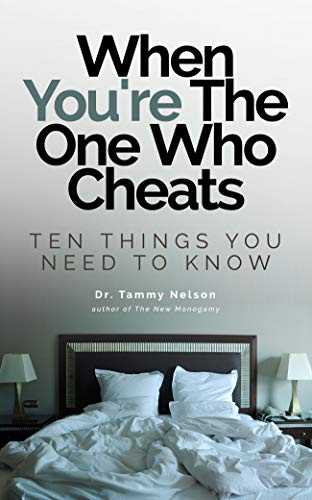Our editors independently select these products. Making a purchase through our links may earn Well+Good a commission
The Differences Between Hypersexuality, Sex Addiction, and Compulsive Sexual Behavior, According to Sex Therapists
Sex addiction, hypersexuality, and compulsive sexual behavior are three different disorders. Here, two sex therapists define each.

Choose your words wisely. Semantics do, in fact, matter—especially when it comes to contentious issues surrounding hypersexuality, sex addiction, and compulsive sexual behavior. They’re not all the same thing, interchangeable as they may seem. With this in mind, we chatted with two sex and relationship therapists about everything there is to know about the often-confused, sex-adjacent behaviors and disorders.
Experts in This Article
a licensed clinical psychotherapist and mental health, sex, and relationship educator
licensed sex and relationship therapist
Hypersexuality vs. Sex Addiction vs. Compulsive Sexual Behavior
While hypersexuality, sex addiction, and compulsive sexual behavior all have something in common, they do have different meanings, each with a bit of controversy to unpack, according to Rachel Wright, MA, LMFT, and Tammy Nelson, PhD.
One of the main reasons why these terms are controversial and hard to define is due in part to the fact that they don’t appear in the Diagnostic Statistical Manual (DSM-5), the American Psychiatric Association’s Manual of Mental Disorders.
“First, it’s super important to note, hypersexuality is not included in the DSM5—it was in the DSM4, but it was removed,” says Wright, a sex, relationships, and mental health therapist. “Some folks simply define hypersexuality as an extremely frequent or sudden increase in libido—which says nothing about an impairment or negative effects in someone’s life.”
The problem is that the Mayo Clinic, a cornerstone of modern medical research and knowledge, defines hypersexuality as a synonym for compulsive sexual behavior (as well as sex addiction), noting that it’s “an excessive preoccupation with sexual fantasies, urges or behaviors that is difficult to control, causes you distress, or negatively affects your health, job, relationships or other parts of your life.”
What’s interesting, though, is that the term “sex addiction” does not appear in the DSM-5 (and neither does hypersexuality nor compulsive sexual behavior). The World Health Organization, however, does recognize compulsive sexual behavior disorder in its International Classification of Diseases and Related Health Problems.
“Because ‘sex addiction’ is the popular term for self-identified hypersexuality, hyper-sexual disorder, and compulsive sexual behavior, most people who have symptoms that interfere with their life may use that label,” says Dr. Nelson, a sex and relationship therapist, TEDx speaker, and the author of Open Monogamy and When You’re the One Who Cheats.

"Open Monogamy: A Guide to Co-Creating Your Ideal Relationship Agreement" by Tammy Nelson — $18.00

"When You're The One Who Cheats: Ten Things You Need To Know" by Tammy Nelson — $10.00
That said, Wright points out that compulsive sexual behavior is most oriented with the stigma and generalization that the term “sex addiction” applies.
However, treatment and recovery are possible and professional help is available for anyone self-identifying as having an out-of-control sexual behavior. “It’s not just the preoccupation with thoughts and increased drive, but also behavior that can feel compulsive/uncontrollable,” she explains.
Dr. Nelson adds to this, noting that compulsive sexual behaviors may feel impossible to stop. “These behaviors are usually followed by shame, remorse or guilt, and a feeling of being out of control,” she explains. “This can be a repeating cycle of self-destructive sexual behaviors that are not serving you or your lifestyle.”
All this to say, the biggest difference between hypersexuality, sex addiction, and compulsive sexual behavior, is that the latter is the only one that’s recognized as a disorder, and even still, only by the WHO, not the DSM. (The DSM-5 classifies eight specific paraphilic disorders. While they might lend to compulsive sexual behavior, it’s not guaranteed that CSB involves these disorders. As such, the best way to determine your habits and behaviors and their effects is to speak with a licensed therapist about any concerns you may have.)
Why It’s Important to Know the Difference
Like so many behavioral and mental classifications knowing the difference between hypersexuality, sex addiction, and compulsive sexual behavior is vital given the stigma surrounding their implications. Plus, as Wright points out, you don’t want to mislabel someone or yourself.
“The issue becomes the stigma and self-ridicule that can be attached to [the label],” says Dr. Nelson. “It can be a way to avoid looking at behaviors that need deeper treatment when acting in a way that goes against one’s historical persistent or rational behavior.”
Still, since the terminology is such a gray area, Wright says that it’s best to avoid using these labels altogether when analyzing someone else’s behavior. “It’s really dangerous for folks to use these as terms to describe someone else—instead use words to describe what you’re objectively seeing,” she suggests. “For example, ‘she has a really high sex drive,’ or ‘he often has difficulty controlling his sexual urges,’ instead of ‘they’re a sex addict.’”
What To Do If You or Someone You Know Is Dealing With Hypersexuality, Sex Addiction, or Compulsive Sexual Behavior
The first thing you’ll want to do is ask yourself if your (or their) behavior is harmful. If you find that your (or their) behavior is negatively impacting someone’s life, wants, desires, and/or intentions, then Wright says that’s the key point at which you should address the behavior.
That said, just because you may find someone’s behavior harmful doesn’t mean that it innately is. “Some partners may label something as problematic sexually when it, in fact, may fall within the non-pathological range of human sexual behavior, such as masturbation, pornography viewing, or even infidelity,” says Dr. Nelson.
As an example, Dr. Nelson points out that just because someone cheats in a relationship doesn’t mean they are a sex addict. “If they aren’t doing it repetitively and without regard for the consequences, they might not be acting compulsively,” she says. “They could be if they are doing it to their own detriment and can’t stop even if they wanted to; it might be compulsive, but this could be a sign of trauma reenactment or a symptom of another disorder.”
That’s not to say that these behaviors aren’t painful if you find yourself on the receiving end. “Excessive preoccupation, the lack of control, and the negative effects on the health and happiness of a person’s life can all signify a serious problem,” Dr. Nelson says.
How To Manage Compulsive Sexual Behaviors
If you’re experiencing intrusive thoughts, compulsive behaviors, or anything around sex that is impairing your life or relationships in any way, Wright says to get help. “In this way, the topic doesn’t matter—it’s the impairment,” she explains. “For example, most people feel anxiety. When is it time to get help for said anxiety? When the anxiety is stopping you from doing things or is getting in the way of you enjoying life. Same with sex.”
The benefit of seeking help—apart from, you know, getting assistance with current symptoms—is that the therapist or doctor will be able to determine if there are other issues at play that could be lending to your sexual tendencies. “If an individual finds that they are compulsively repeating behaviors they cannot stop, it is possible that they could be suffering from a co-morbid issue like OCD [obsessive-compulsive disorder] or bipolar disorder, or they could have an alcohol or drug problem that is accompanied by acting out sexually,” says Dr. Nelson.
“Therapy, group, in-patient programs, or other support groups to help manage and reduce behaviors can teach people about positive sexuality,” Dr. Nelson says.
The Takeaway
Sex is a really important part of life. “It’s important to be able to interact with it in a healthy way,” Wright says.
At the end of the day, though, the concept of hypersexuality vs. sex addiction vs. compulsive sexual behavior remains a highly controversial topic in the psychological and medical communities.
“The concept of sex addiction is constantly debated in the psychology and medical communities—there is simply not enough empirical evidence to support the fact that hypersexuality/sex addiction is a mental illness and many fear that having it as a diagnosis could pathologize very normal and healthy aspects of human sexuality,” Wright says.
Suffice it to say, when living with or being subjected to persistent sexual behaviors that make you feel unsettled, your best next step is to avoid self-labeling and instead seek guidance from a professional.
Sign up for the Well+Good SHOP Newsletter
Get exclusive deals on wellness, beauty, fitness, and food products that have been hand-picked by our editors.
Got it, you've been added to our email list.







